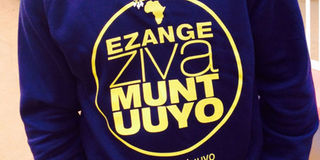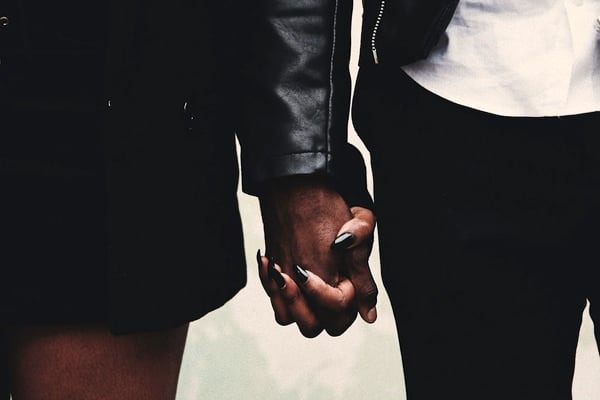T-shirts for making statements and money

What you need to know:
ENTERPRISING. Away from lyrics, hip-hop artistes make money from statement T-shirts, writes Edgar R. Batte
T-shirts might be just cloth for most but for the Ugandan hip-hop artistes, it is a platform on which statements are made, and declarations alike, aimed at building brands. There is some money made too.
You have probably seen artistes Sylvester Kabombo of Sylvester and Abrams duo, The Mith, Bebe Cool, Navio, and others clad in T-shirts with rich wording, of mostly phrases from their songs.
Ezange Ziva Muntuyo has been one of the most popular t-shirts. It is a statement from Kabombo’s 2014 song Ziva Muntuyo. Loosely translated, ‘my money is from hard work’.
“Some people don’t believe that money can be rightfully earned even those that have watched you grow since you made your first step. I sang about situations in our daily lives. The money you have worked hard for can attract good and bad relations, from friends and relatives, even from people you don’t know,” the hip-hop veteran artiste explains.
Why T-shirts
With expensive media, Kabombo says, he needed a platform on which he could promote his song. It was his second time using T-shirts as a means to promote his music and create brand identity as an artiste. He turned to Facebook to market the T-shirts.
“I developed the idea in 2013 after the release of Mpaayo Akaseera. I wanted to create products that communicate people’s values. Communication is key in this because I select phrases that communicate or make a social impact.
Besides music, I work with Bayimba Foundation, so I wanted to create another revenue stream,” he explains.
When he started, he wore his T-shirts at performances, in music videos and to work. When he realised the demand and positive feedback from people, he improved on the quality and also put a price tag on them.
He did not register good sales with Mpaayo Akaseera T-shirts as he did with his second batch, for the song Omulya Mamba Aba Omu.
“I remember a friend of mine in China and Qatar each purchased seven and paid cash. The sales that month motivated me. I would make daily Facebook posts which drew more people interested in buying the T-shirts. Social media has had a bigger impact.”
Artistes that benefit
Tom Mayanja, aka The Mith, a hip-hop artiste, says T-shirts as promotional tools, have also helped him promote his music. He began with ‘I’m So UG’, T-shirts after his hit song.
“In 2012, the team and I felt the song could be more, we started off with T-shirts and bandanas which we printed as a unit, but whenever we performed at universities, the fans would ask where they could acquire the T-shirts from. We realised that we would tap into that market,” he recounts.
He had to respond to the fans’ request. He put aside Shs1m to get the T-shirts and bandanas printed. They also incurred costs for getting the right design by Ezi (Hilary Mugizi) from Ezi Wear. “That was an important move for my brand as an artiste. It was and still is something that I’m also recognised for. We made sure the T-shirts were like the music, high quality,” he adds. He had also worked with Definition, which also makes cloth merchandise, on another song Toast To Life.
With the T-shirts, the artists use imagery such as the Independence Monument, a woman in traditional wear dancing and also the Crested Crane, which tap into both national and personal interests.
Music and business
Rapper Flex D’Paper, real name Alex Kwesigabo, is not just a rapper, but a fashion designer too who started out in 2012. He runs Rapaholix Wear, a clothing line that deals in urban trendy outfits.
Flex made items for his music videos and made it a full clothing line in 2013. He now makes statement T-shirts including, ‘If found, please return to Kampala’.
He makes t-shirts for mainly the youth and older people that are outgoing and not afraid to use statement shirts.
“It is them that understand my concepts at the moment. I have branded T-shirts for artistes such as Enygma, Navio, Bryan Mckenzie and Mister Deejay of Radiocity, Cynthia of Urban Television, DJ slick Stuart, Selecta Jay and Calvin the Entertainer,” the designer adds. A T-shirt costs between Shs35, 000 and Shs45, 000, depending on the work that goes into customisation.
On music
While designing, Flex D’Paper spares time for music. His music is a fusion of hip-hop and African sound. “It is not the hard core hip-hop done by Americans. To me, it is a new wave of expressing myself but while reaching out to the listener,” he explains.
He started doing music while at university in 2011. Music had always been his passion from an earlier age. For Sylvester, music came as therapy, drawing his lyrics from every day experiences.
“My life has been a hustle and I have gone through a lot financial challenges; not being able to meet all my needs. I always believed in working for myself with whatever I can.
The clothing business is a testimony of this from the first T-shirt print. I invested more sweat equity than financial because I had little on me,” Kabombo adds.
Initially, he used to send someone who was more familiar with the business to purchase the t-shirts for him but had in-put in terms of choosing colours and sizes of the orders.
Today, he is familiar with the business, so he makes purchases depending on the clientele’s demand. T-shirts are printed by a childhood friend, Fred Kasekende, who is also a rapper going by the stage name, Snooty Fredo.
In a competitive market artistes are looking for unique ways to stand out and make an extra buck.
The impact
The Mith says when people wear his brand, he realises how much people appreciate home-grown products if they are done well. His team sold 100 Toast to Life t-shirts the first night, earning them Shs3.5m.
“The I’m So UG line keeps on getting produced. It’s more about entrepreneurship and building brands beyond what the brand is known for.
Sylvester Kabombo has scaled heights with his ‘Ziva Muntuyo’ brand. He has been featured on CNN and the like,” The Mith elaborates. Sometimes individuals buy T-shirts for a cause.
One Saturday, someone bought 50 T-shirts for his friends. They were heading to Namboole to watch the Uganda Cranes play, and they wanted to make a statement. That was major for us because of the occasion,” he recounts.
Flex D’Paper’s biggest single sale was during Hot 100 beach gig where he sold T-shirts worth Shs2.5m. “I market my business through social media mainly as well as a local television Face Television,” he adds.




